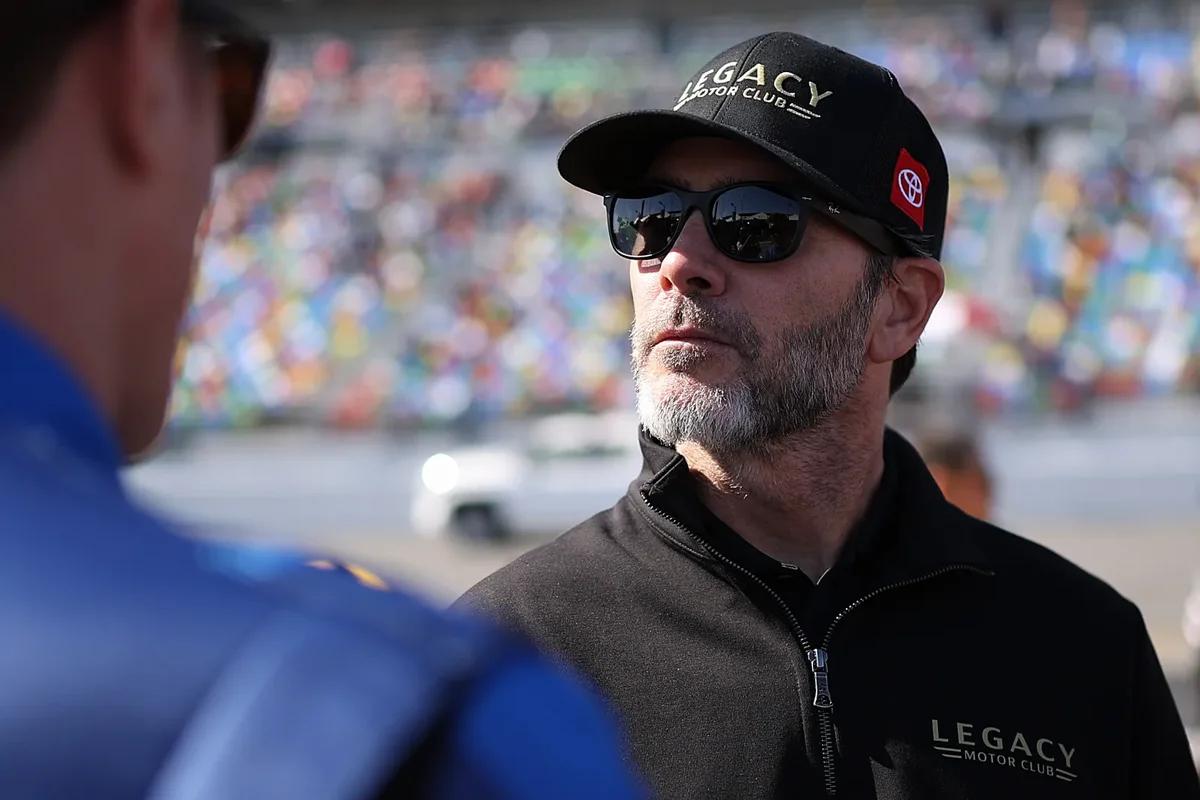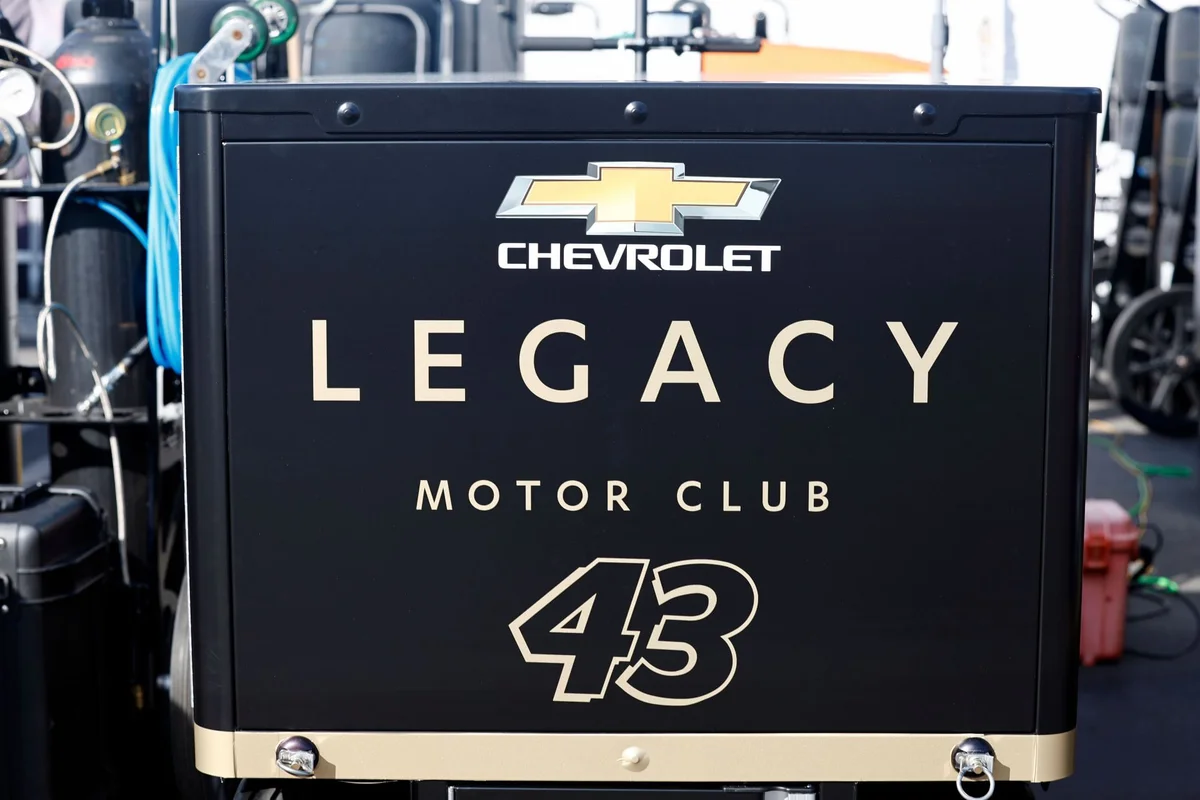The Legacy Motor Club Next Gen story began long before the 2022 NASCAR Cup Series season, when sweeping changes arrived to revolutionize competition and affordability across the sport. At the heart of this transformation were Legacy Motor Club CEO Cal Wells III and engine-builder Doug Yates, whose early initiatives became a catalyst for NASCAR’s current era.
Origins of the Next Gen Revolution in NASCAR
When the NASCAR Next Gen car made its official debut in the Cup Series in 2022, much attention centered on its innovative features, such as independent rear suspension, a five-speed sequential manual gearbox, and a unified car body for all track types. The vehicle also introduced a composite body and reimagined the supply chain, fundamentally altering the economics and technical landscape of the series.
The foundation for this transformation was laid years earlier, when Cal Wells III and Doug Yates first collaborated on addressing key issues in the sport, including lowering costs, ensuring competitive balance, and building long-term sustainability. Their primary proposal targeted widespread standardization of Cup car components, aiming to make team operations more efficient and cost-effective. Wells and Yates launched a joint venture dedicated to developing and selling design concepts tailored for NASCAR, establishing the groundwork for what would eventually become the Next Gen platform.

Wells detailed the process that led to the Next Gen initiative’s breakthrough: after formative discussions with NASCAR’s leadership, he and Yates crafted a proposal for maximum standardization of Cup car parts. Their joint efforts through the newly-formed company resulted in NASCAR purchasing their conceptual blueprints, setting the project in motion.
“Doug and I felt utilizing sole-source suppliers to provide parts at a lower cost for all teams racing in the Cup Series would result in team ownership becoming more financially sustainable. After buying conceptual designs of what is now referred to as the ‘Next Gen’ car from a new company that Doug and I had formed together NASCAR moved forward to design the Next Gen car and then implement it across the Cup category.”
— Cal Wells III, CEO, Legacy Motor Club
Once adopted, the Next Gen car marked a turning point in the series, using more standardized, cost-effective components that made fielding a competitive team accessible to a broader range of organizations. The focus on cost parity and innovation led the 2022 season to feature a more balanced and unpredictable racing environment than seen in prior years.
Transformative Impact of the Next Gen Car on Cup Series Racing
“Ultimately NASCAR introduced the Next Gen car for the 2022 Cup Series season. The Next Gen car has made racing more competitive across all entries with teams both big and small and has also driven down the cost to compete in the Cup Series by approximately 40%.”
— Cal Wells III, CEO, Legacy Motor Club
This overhaul brought about dramatic changes not only in on-track competition but also in the financial dynamics of racing. According to Wells, the introduction of sole-source suppliers and standardized parts led to a decrease in operational costs by about 40 percent, helping both large and small teams. These innovations have ensured that the sport remains viable for new team owners while promoting closer finishes and greater unpredictability, as intended by the early collaboration between Wells and Yates.
Tracking Winners and Standout Performances in the Next Gen Era
As of the conclusion of the 2025 Cup Series season—the fourth year of the Next Gen era—the series landscape has evolved significantly. The 2025 champion, Kyle Larson, has proven to be the most dominant driver, earning 16 victories along with numerous second-place finishes. Denny Hamlin and William Byron have each secured 14 wins, though Hamlin narrowly surpasses Byron in the count of runner-up finishes, with 13 compared to Byron’s nine.
In terms of organizations, Hendrick Motorsports has showcased consistent superiority, capturing 40 race wins during this period. Joe Gibbs Racing holds the second spot with 33 victories, and Team Penske rounds out the top three with 23 race wins.
Despite Penske’s impressive streak of three consecutive Cup championships, their dominance was halted when Joey Logano and Ryan Blaney did not reach the Championship 4 in 2025. Instead, Hendrick Motorsports, with Kyle Larson at the helm, secured the winning title that season.
Looking Ahead: Enduring Effects of the Next Gen Era
The legacy of the Legacy Motor Club Next Gen project continues to shape NASCAR, as efforts by Cal Wells III and Doug Yates have set new standards for the sport’s structure and competition. With races now more competitive and financially manageable, the Cup Series remains vibrant, encouraging participation from established leaders like Hendrick Motorsports and rising organizations alike.
This era’s focus on innovation, equity, and sustainability is likely to influence future decisions within NASCAR, as stakeholders seek to preserve a balanced playing field and ensure the longevity of the series. The collaborative groundwork laid years before the Next Gen rollout remains a defining chapter in modern racing history.
Cal Wells III on the project he and Doug Yates worked on that served as the genesis for the NextGen car pic.twitter.com/8TWIoQApBU
— Matt Weaver (@MattWeaverRA) November 22, 2025
